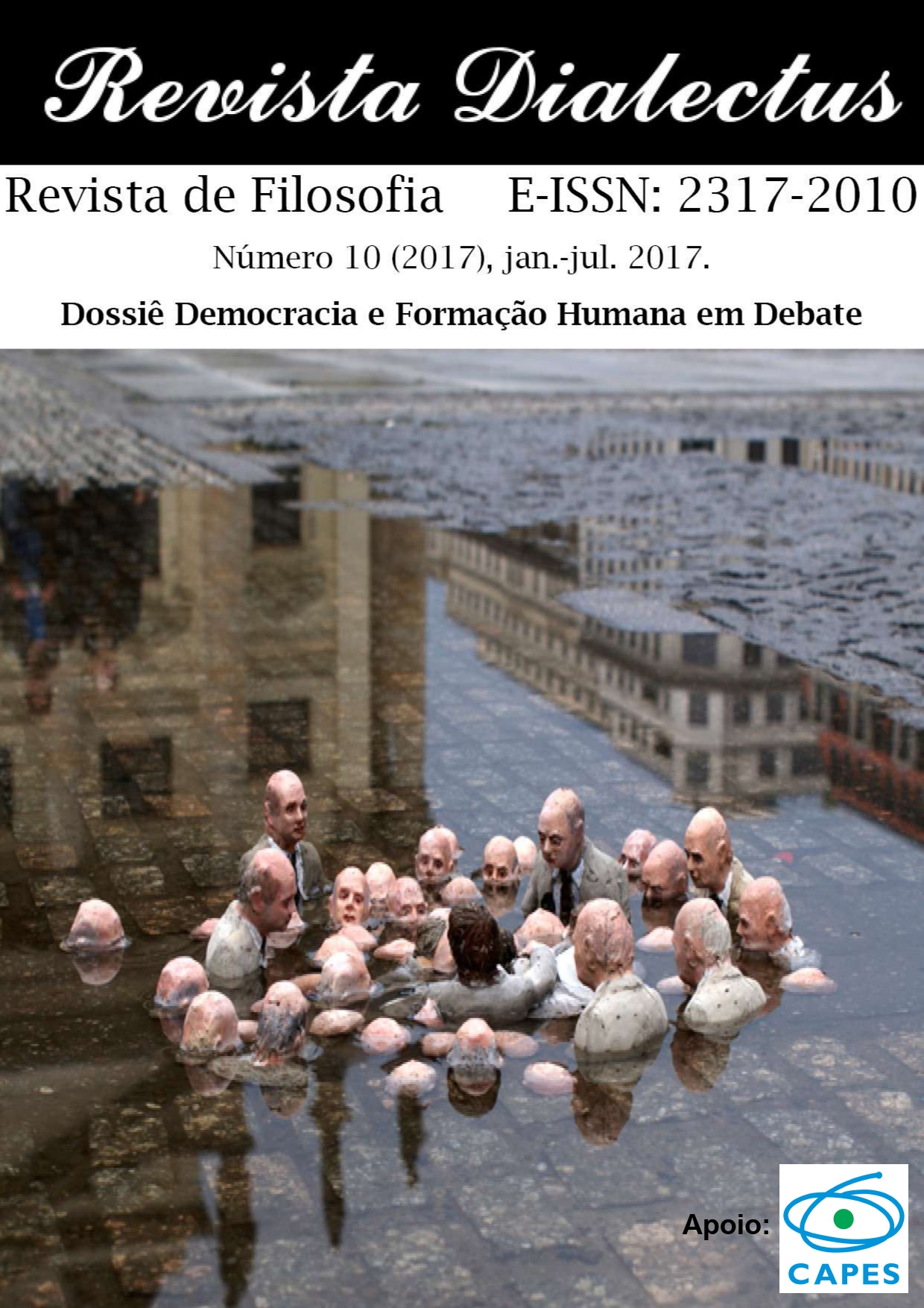SCHILLER E A EDUCAÇÃO ESTÉTICA E REVOLUCIONÁRIA DO HOMEM
DOI:
https://doi.org/10.30611/2017n10id19920Abstract
Nosso artigo pretende mostrar, em linhas gerais, a concepção de Friedrich Schiller (1759-1805), filósofo, poeta e dramaturgo alemão de fins do século XVIII, sobre o papel da arte na reeducação moral e política do homem moderno desenvolvida em sua obra Sobre a Educação Estética da Humanidade numa Série de Cartas (1795). Schiller não foi um teórico e defensor da arte como mera contemplação e gozo individual. Schiller não via na arte uma atividade cuja finalidade se encerrava no interior dela mesma. Para Schiller, a arte deveria servir a uma finalidade que a transcendia, a uma finalidade educativa e formadora do intelecto e dos sentimentos humanos. Schiller não acreditava na ciência e nos filósofos e em sua razão fria, calculista e abstrata como os verdadeiros redentores da humanidade. Schiller acreditava, romanticamente, no papel formador e educativo da arte e do artista engajados na construção de um homem e de um mundo reconciliados com os sentimentos, a imaginação, a poesia e a vida de impulsos e criações emanadas do íntimo profundo da natureza.
Palavras-Chaves: Friedrich Schiller (1759-1805). Estética. Romantismo Alemão
Downloads
Published
Issue
Section
License
Authors who publish in this journal agree to the following terms:
- Authors retain the copyright and grant the journal the right of first publication, with the work simultaneously licensed under the Attribution-NonCommercial-NoDerivatives 4.0 International (CC BY-NC-ND 4.0) License, which allows the non-commercial sharing of work, without modifications and with acknowledgment of authorship and initial publication in this journal.
- Authors are authorized to take additional contracts separately, for non-exclusive distribution of the version of the work published in this journal (eg publish in institutional repository or as a book chapter), with acknowledgment of authorship and initial publication in this journal.
- Authors are allowed and encouraged to publish and distribute their work online (eg in institutional repositories or on their personal page) at any point before or during the editorial process, as this can generate productive changes as well as increase the impact and citation of published work (See The Free Access Effect).



















